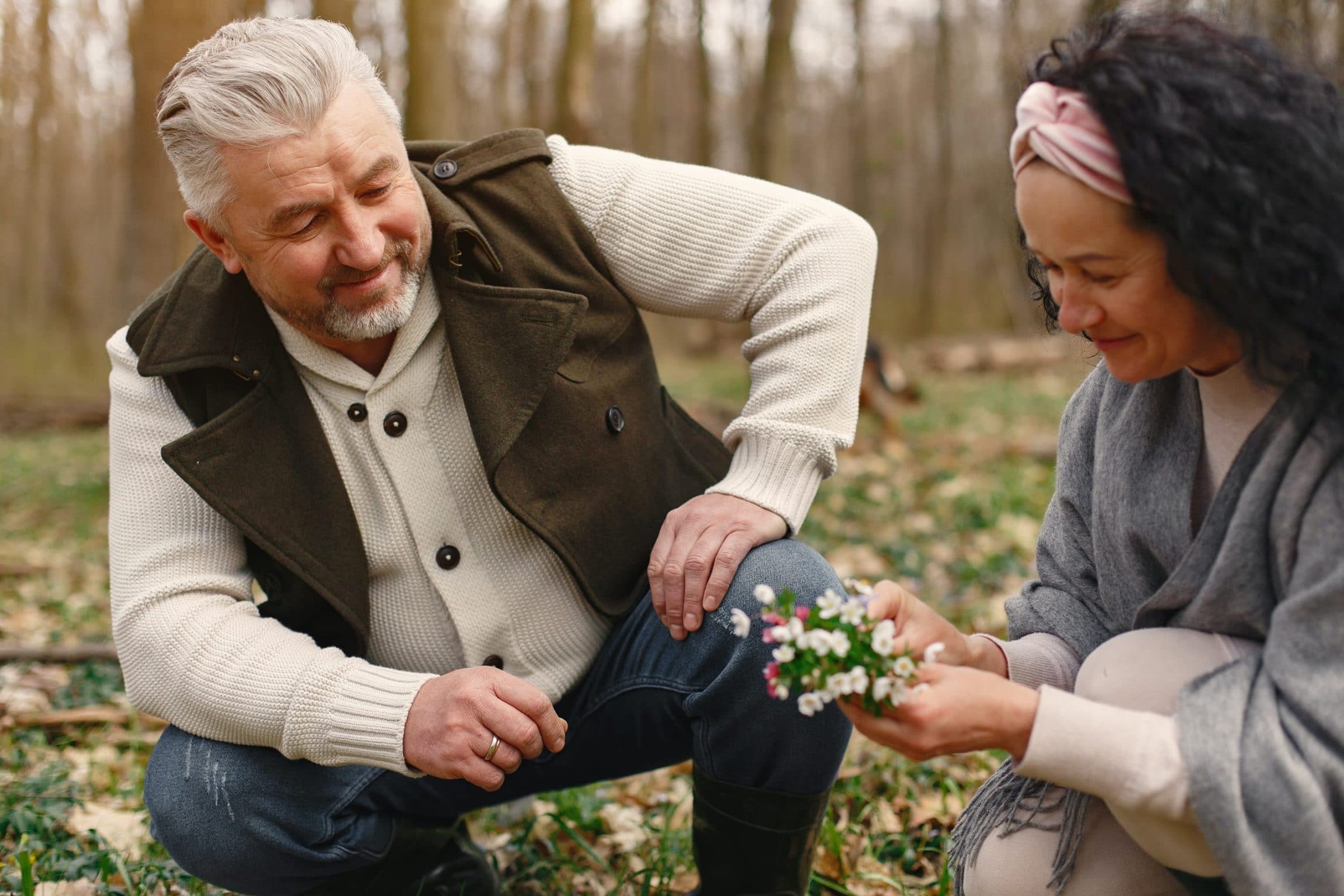Published on: July 24, 2021
Updated on: July 24, 2025
Author: Kentucky Counseling Center
Retirement marks the beginning of a new chapter in life—one free from the daily grind of work deadlines and office pressures. It’s a time to relax, pursue passions, and spend quality moments with family. However, transitioning from an active working life to retirement can bring significant changes to your daily routine and environment. Staying active both mentally and physically is crucial to enjoying your golden years with purpose and fulfillment.
Whether you’re embarking on retirement yourself or supporting a loved one through this transition, this guide offers practical strategies to help you stay active and engaged during retirement.
What Is Retirement?
Retirement is the phase of life where an individual withdraws from their active professional career, typically around the age of 65, though some choose to retire earlier, between 60 and 62. Retirement planning involves saving, investing, and managing finances to ensure financial independence and stability after leaving the workforce.
Key Points:
- Standard Retirement Age: Generally around 65 years old.
- Early Retirement: Some opt to retire as early as 60–62 years old.
- Financial Planning: Essential for ensuring a comfortable and secure retirement.
The Importance of Staying Active in Retirement
Staying active in retirement offers numerous benefits for both physical and mental health. It helps prevent cognitive decline, reduces the risk of chronic diseases, and enhances overall well-being. Additionally, staying active allows retirees to discover new hobbies, develop hidden talents, and maintain social connections, all of which contribute to a fulfilling retirement.
Benefits Include:
- Physical Health: Prevents heart disease, strengthens bones, and boosts the immune system.
- Mental Health: Keeps the mind sharp, reduces the risk of dementia and Alzheimer’s, and enhances emotional well-being.
- Social Engagement: Maintains relationships and fosters new friendships.
Ways to Stay Active in Retirement
Transitioning from a structured work life to retirement can be challenging. Planning and adopting new habits can help mitigate feelings of stress or boredom. Here are some effective strategies to stay active and engaged during retirement:
1. Learn and Discover New Skills
Embrace the opportunity to learn something new. Whether it’s cooking, fishing, painting, or pottery, acquiring new skills keeps your mind engaged and prevents boredom. Engaging in hobbies that require decision-making and problem-solving can help maintain cognitive function and emotional health.
- Examples:
- Learn to play a musical instrument like the piano or guitar.
- Take up painting or drawing to express creativity.
- Explore new culinary techniques or baking recipes.
2. Stay Connected Socially
Maintaining social connections is vital for mental and emotional health. Retirees have more time to spend with friends and loved ones, which can prevent feelings of isolation and depression.
- Ways to Stay Connected:
- Schedule regular phone or video calls with family and friends.
- Join local community groups or clubs, such as book clubs or gardening societies.
- Participate in social gatherings and community events.
3. Be Physically Active
Physical activity is essential for maintaining health and mobility. Incorporate a variety of gentle exercises to keep your body strong and flexible.
- Recommended Activities:
- Gardening or light yard work.
- Dancing, aerobics, or yoga classes tailored for seniors.
- Daily walks with a friend or brisk walking in your neighborhood.
4. Monitor Your Vital Signs
Keeping track of your health is crucial in retirement. Regular monitoring can help you stay on top of any potential health issues and maintain independence.
- Health Management Tips:
- Use portable medical devices like blood glucose and blood pressure monitors.
- Maintain a balanced diet and limit alcohol consumption.
- Schedule regular check-ups with your healthcare provider.
5. Consider Volunteering
Volunteering provides a sense of purpose and allows retirees to give back to the community. It can also be a way to stay active and meet new people.
- Volunteer Opportunities:
- Assist at local charities or nonprofit organizations.
- Join disaster relief teams or community service groups.
- Support educational programs or mentor young people.
6. Always Get a Good Night’s Sleep
Adequate sleep is essential for overall health and well-being. Establishing a consistent sleep routine can improve both physical and mental health.
- Sleep Improvement Tips:
- Maintain a regular sleep schedule by waking up and going to bed at the same time each day.
- Create a relaxing bedtime routine, such as reading or meditating.
- Limit daytime naps and avoid stimulating activities before bedtime.
7. Join Fitness Groups for Seniors
Participating in fitness groups designed for seniors can provide both physical exercise and social interaction. These groups offer structured activities that promote health and camaraderie.
- Group Activities:
- Regular group exercise classes, such as stretching or Tai Chi.
- Community walks or cycling groups.
- Virtual fitness sessions for those who prefer exercising at home.
8. Live in Love
Companionship is a fundamental human need. Whether you’re single or have a partner, nurturing relationships can enhance your happiness and sense of fulfillment in retirement.
- Relationship Building:
- Spend quality time with your spouse or life partner through shared activities like traveling or cooking together.
- Seek new romantic relationships if single.
- Strengthen bonds with family members and close friends.
9. Find a New Purpose in Life
Having a sense of purpose can greatly enhance your quality of life. Whether it’s through volunteering, pursuing passions, or setting new goals, finding a new direction can provide meaning and motivation.
- Purposeful Activities:
- Engage in community projects or advocacy work.
- Set personal goals, such as writing a memoir or starting a small business.
- Explore new interests that give you a sense of accomplishment.
10. Have a Daily Dose of Mental Workout
Keeping your mind active is just as important as staying physically active. Engaging in mentally stimulating activities can improve cognitive function and prevent mental decline.
- Mental Exercises:
- Solve puzzles like Sudoku or crossword puzzles.
- Play strategic games such as chess or bridge.
- Take up reading or writing to keep your mind engaged.
Additional Tips for Staying Active During Retirement
1. Embrace Lifelong Learning
Continuing education can keep your mind sharp and provide new opportunities for personal growth. Many universities and community colleges offer courses tailored for seniors.
2. Travel and Explore
Exploring new places can be invigorating and provide a sense of adventure. Whether it’s local excursions or international travel, experiencing different cultures can enrich your retirement.
3. Maintain a Balanced Diet
Eating a nutritious diet supports both physical and mental health. Incorporate a variety of fruits, vegetables, lean proteins, and whole grains into your meals.
4. Practice Mindfulness and Relaxation
Techniques like meditation, deep breathing, and yoga can reduce stress and enhance mental clarity. Incorporating mindfulness into your daily routine can improve overall well-being.
Seek Support When Needed
Adjusting to retirement can be challenging, and it’s important to seek support if you’re feeling overwhelmed. Kentucky Counseling Center (KCC) offers online counseling services tailored to retirees, helping you navigate this transition with confidence and support.
Take Action Today: Don’t hesitate to reach out for professional guidance to ensure a smooth and fulfilling retirement journey.
Final Thoughts
Retirement is a significant life transition that offers the opportunity to explore new interests, strengthen relationships, and focus on personal well-being. By staying active both mentally and physically, you can enjoy a rich and fulfilling retirement. Embrace the changes, seek out new experiences, and prioritize your health to make the most of your golden years.
If you need additional support or guidance, consider reaching out to a mental health professional at Kentucky Counseling Center (KCC). Their online services provide convenient and confidential support to help you thrive in retirement.




